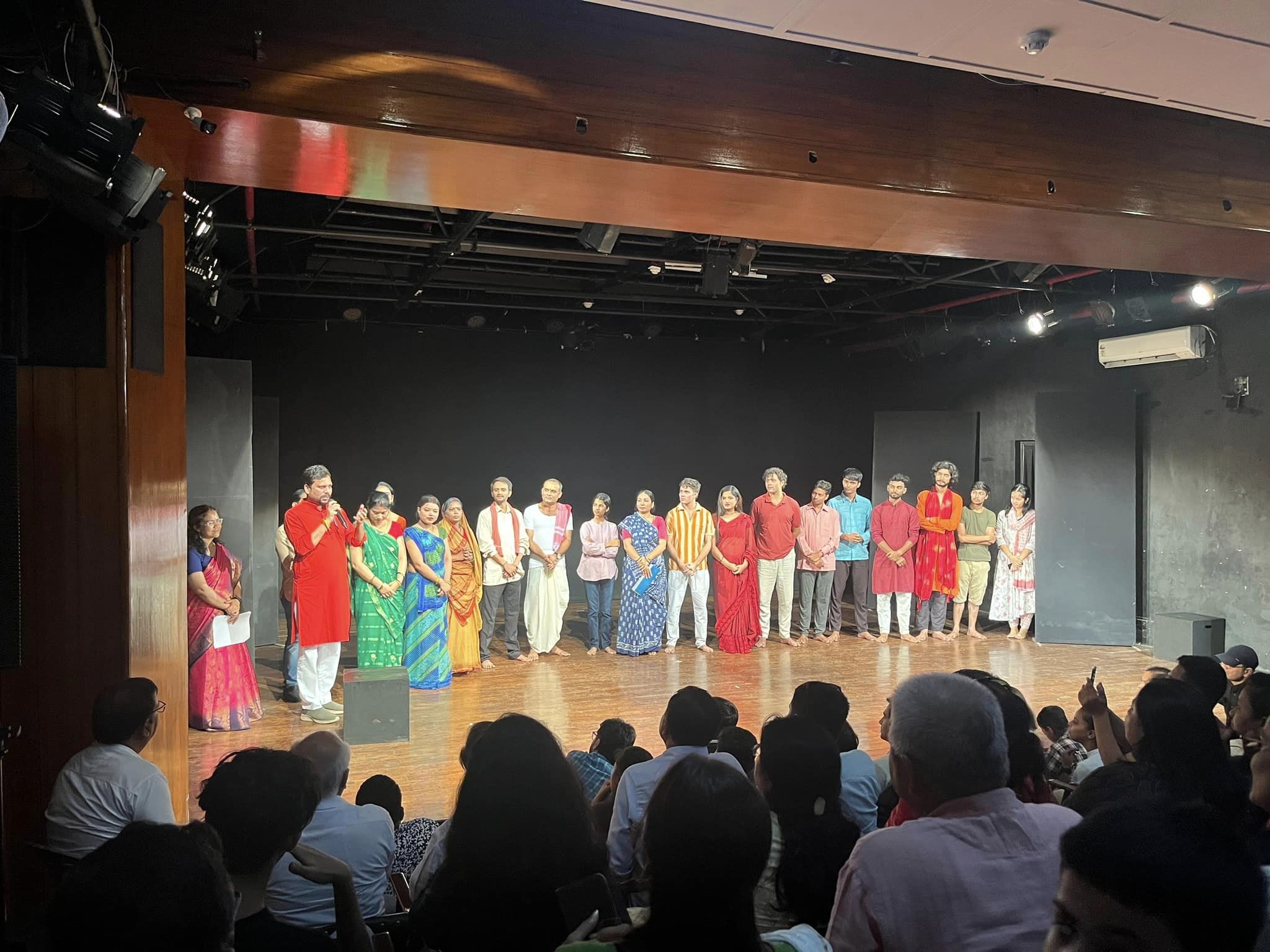
by Gunjan Shree
Over the past two days, I had the pleasure of attending Mailorang’s 18th edition of the Mithila Rang Mahotsav, an annual festival that has become a cornerstone of Maithili drama in the National Capital and beyond. Mailorang, known for its commitment to dramatic arts, continues to set the standard for Maithili and Hindi theatre, showcasing both established and emerging talents.
The first day of the festival featured two plays, interspersed with a captivating dance performance on Durga Ashtakam by Manjusha Jha and Ishika Kumari. The first play, titled ‘Manthan,’ was directed by Raman Kumar and left a strong impression on me. Raman Kumar’s direction stood out for its vision and execution, demonstrating a deep understanding of stagecraft. As someone who admires his work, I found ‘Manthan’ to be particularly engaging, especially the performance of the actor who delivered the poem ‘Tum Neta Ho.’ The design and acting were commendable, though the concept seemed familiar, possibly reminiscent of something I’ve seen in the web series ‘Dahad’ or elsewhere.
The second play of the evening was ‘Graduate Puthu,’ a dramatic adaptation of the classic Maithili story by Prof. Harimohan Jha. Directed by Jyoti Jha, with assistance from Raman Kumar, the play was a well-rounded production. The acting, dialogue delivery, and lighting were particularly strong, though the music occasionally overpowered the actors’ voices, which disrupted the mood of the drama. Among the cast, the performances of the actors playing Sasur and Diyar (Julfi Wala) were outstanding. Their expressions and dialogue delivery were truly remarkable, and I expect them to rise to the top of their field soon.
One small critique is related to the music choices in the play. While the use of a Baul song to set the scene in Kolkata was effective, the final song (possibly by Satabarti) felt out of place. In my view, the play would have ended more powerfully with the dialogue “Maduaa ke khet me katahu Kesar bhelaik achhi,” delivered by Jyoti (as Sasu), rather than transitioning to a song. Understanding where to conclude is crucial in any art form, and a strong ending can elevate the entire piece.
Overall, Jyoti Jha and her team deserve praise for their impressive efforts. The festival showcased a blend of tradition and innovation that promises a bright future for Maithili drama. I wish them continued success in their artistic endeavors.
Lastly, I want to thank Dr. Prakash, who, although not formally inviting me, made me feel welcome to attend the festival. I look forward to sharing my thoughts on the second day’s plays and activities soon.
